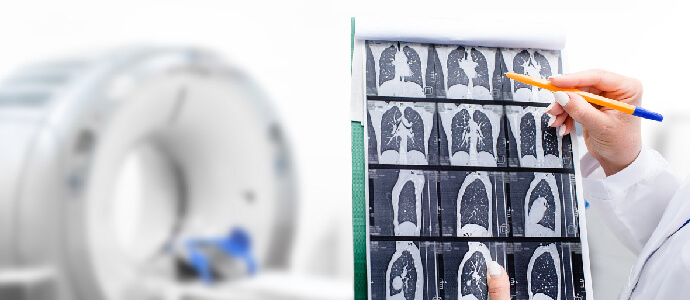A cancer misdiagnosis may mean the difference between life and death. If your cancer is diagnosed early enough, remission or cure is possible. Tragically, in far too many cases, the disease is missed – and, along with it, the possibility of effective treatment. Patients who survive may still face expensive, time-consuming, and painful recoveries. If your healthcare professional failed to diagnose your cancer or that of a loved one, you may have a claim for medical malpractice. Talk to the professionals at Cooper Schall & Levy. We will help you understand your legal rights and demand the compensation you deserve.
Why Is A Cancer Misdiagnosis Different From Others?
If a doctor fails to diagnose any disease or condition, the patient can suffer severe consequences, up to and including death. But cancer presents a unique risk. It occurs in the human body when cells experience uncontrolled and unusual growth. This cell growth can spread to and destroy other parts of the body, ultimately leading to death, if it is not properly treated.
Some types of cancer are naturally aggressive, but all forms are most effectively treated if they are found early. Medical professionals and scientists have a number of tools at their disposal to diagnose cancer, such as biopsies, mammograms, X-rays, and others. No matter the type of cancer, discovering it early is a critical step in the treatment and recovery process.
What May Cause A Doctor To Misdiagnose Cancer?
Misdiagnosing cancer, or not diagnosing it in a timely manner, can happen for a number of reasons:
- Failure to adequately screen or order appropriate testing – Some patients are at an increased risk for cancer and should be screened. In other cases, certain symptoms should lead a reasonably prudent healthcare professional to order testing. Failure to screen or test may be a strong indicator of malpractice.
- Failure to properly read a biopsy or other test – Doctors and other medical professionals sometimes misread test results. Although the indicators of cancer may be present, it is up to your healthcare provider to properly identify them.
- Confusing symptoms of cancer for another illness – If you have cancer symptoms, you may assume they will automatically point to the disease. But doctors can mistake your symptoms for another illness. For example, breast cancer is sometimes misdiagnosed as non-cancerous cysts or benign tumors.
- Not understanding a patient’s complaints – A doctor has an obligation to appropriately respond to a patient’s health complaints. If unable to do so, he or she should refer the patient to someone who will. Failure to refer a patient when necessary is a breach of a doctor’s duties.
- Not scheduling follow-up appointments – Cancer patients need a close eye on their condition to make sure they don’t worsen. If your doctor diagnoses you with cancer, or anything else, he or she should schedule a follow-up appointment.
- Overlooking family history and other important patient information – Part of what a doctor does is gather relevant family history and other patient data, which will show whether there is an increased risk of developing cancer. Failing to do this can make proper diagnosis more difficult.
- Other errors – Oversights happen all the time in the medical profession, but they can be especially disastrous for a cancer patient. Mixed-up records, defective machines, and performing the wrong tests are just a few examples.
How Do I Prove That A Misdiagnosis Is The Result Of Malpractice?
Even the best-trained doctors can make mistakes, and not every mistake necessarily means malpractice. To meet the standard of malpractice, the error has to be serious enough to indicate negligence on the part of the physician. That means the doctor failed to take a course of action that a reasonable healthcare professional, in the same circumstances, would have taken. In particular, the patient must demonstrate:
- The existence of a doctor-patient relationship that obligates the healthcare professional to provide you with a certain level of care.
- Failure to act with reasonable care, also known as negligence, is often the most contested part of a malpractice lawsuit.
- The patient suffered as a result of the misdiagnosis. The healthcare provider’s negligence must directly cause physical injury, harm, or death to the patient.
- The patient suffered damages. The patient must have experienced damages as a result of the above.
What Damages Might I Be Awarded In A Cancer Misdiagnosis Case?
Not being properly diagnosed will have significant repercussions for the cancer patient that you may be entitled to compensation for within the MCARE statute, which may include the following:
- Medical expenses – A patient will need to be treated for cancer itself as well as for any complications arising from the misdiagnosis. This may result in heavy medical bills and related expenses.
- Prescription drug expenses – Treatment for cancer, which may be advanced due to the misdiagnosis, will include expensive cancer medications.
- Lost wages and lost earning capacity – The patient will likely need to be hospitalized or go through a lengthy treatment program that will cause him or her to lose time from work. Injuries and complications stemming from the misdiagnosis may cause the patient to lose the ability to work at the same level as before. The patient may not even be able to perform the same type of work after the treatment.
- Pain and suffering and emotional distress – Being misdiagnosed for cancer may cause significant stress, anxiety, and related problems.
- Wrongful death – If the patient dies, his or her family may have a claim for wrongful death, including funeral expenses and compensation for the grief of losing a loved one.
Contact Our Philadelphia Cancer Misdiagnosis Attorney
Your first priority is your health. Once your cancer is properly diagnosed, follow all doctor recommendations. Then, contact Cooper Schall & Levy. There may be time limits that apply to your case, so it is important that you seek legal counsel at your earliest availability. Let our experienced cancer misdiagnosis attorneys fight for you.
Cooper Schall & Levy medical malpractice lawyers serve Philadelphia, Pennsylvania as well as neighboring counties such as Montgomery County and Delaware County and cover neighborhoods such as Norristown and Drexel Hill.


